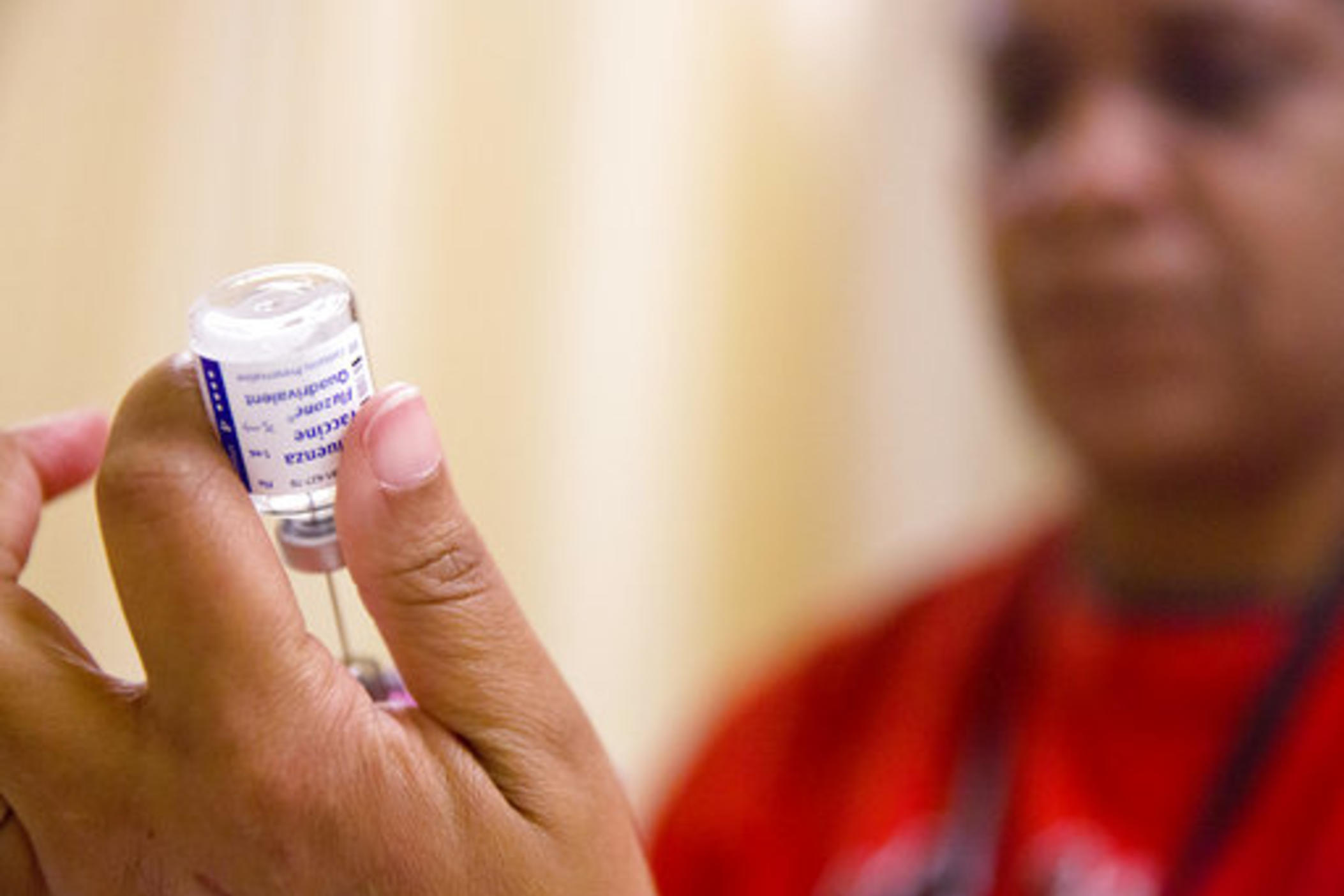Section Branding
Header Content
Flu Season: Get Vaccinated Early To Build Immunity, Officials Say
Primary Content
Now is the time to get vaccinated against influenza to build immunity, which takes two to three weeks, while continuing to take public health suggestions to prevent coronavirus, doctors say.
With the threat of COVID-19 as well as other illnesses that could lead to pneumonia, it's even more important to get a flu shot, said Dr. John Johnson, secretary of the board of directors of the Medical Association of Atlanta.
"Not having a vaccine increases your risk of fatality associated with influenza," he said. "I would say getting it early would be the key. Having both influenza and COVID-19 concomitantly could be potentially catastrophic."
RELATED: High School Football Coach In South Georgia Hospitalized With Flu And COVID-19
Flu sent more than 2,500 people to metro Atlanta area hospitals and left 94 Georgians dead during the 40 weeks of the 2019-20 influenza season. The Influenza Hospitalization Surveillance Network reports laboratory confirmed influenza hospitalizations in the eight-county metro Atlanta area (Fulton, DeKalb, Clayton, Cobb, Douglas, Gwinnett, Rockdale, and Newton).
The Centers for Disease Control and Prevention estimated 39 to 56 million flu illnesses nationwide, resulting in 18 to 26 million medical visits. A significant flu and RSV (respiratory syncytial virus) season this year could put an added strain on the healthcare system, as people experience similar symptoms – fever, cough, and aches, for example – with COVID-19 and respiratory viruses.
"I would say the risk of concomitant infection or dual infection of both is very severe," Johnson said. "Again, there's increased mortality associated with each condition independently. And so both attacking the respiratory system of the same individual concomitantly could potentially have catastrophic impact."
While no vaccine exists for COVID-19, the U.S. Food and Drug Administration has approved a vaccine for influenza and everyone over the age of 6 months is encouraged to receive it.
"We even recommend pregnant women to get a flu vaccine because of the passive immunity to their unborn child," Johnson said.
There is good news for optimists, Emory University Associate Dean of Medicine Dr. Carlos del Rio said.
"If we continue doing what we're doing, we can decrease (coronavirus) transmission," he said. "(If) we're using our face masks, we're socially distancing, we're washing our hands, we may not see any flu this winter because that's what happened to the southern hemisphere in Australia and in most of South America."
Never before have we had such a public outcry for the importance of personal hygiene to include hand washing, staying 6 feet apart in public and face coverings, Johnson said.
"I would say we're now going into an influenza season where we have the benefit of all of the work that's been put in place, thanks to the CDC, thanks to our governor, thanks to the Department of Public Health in the state of Georgia," Johnson said. "We're taking all of these precautionary measures that will be much more favorable for us going into flu season."


